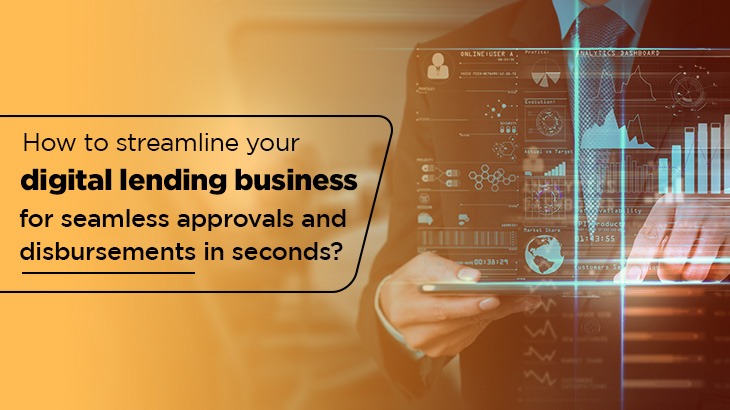
The concept of open banking has been around for at least 5 years now. Alright, but what is Open Banking? Simply put, it is a practice by which third party service providers are given secure expressly permissioned access to customer’s banking and financial data such as bank statement for the last few months, deposit details, credit facilities availed and repayment tracks. Why do third parties need access to customers banking and financial data? The third-party service providers can then tailor their services the specific needs of the customer. So far so good. One problem though. How do you protect the data from being misused or falling into unsafe hands?
The European Union has addressed this through the General Data Protection Regulation (GDPR). GDPR is the legislation intended to protect the customer from misuse of her personal and sensitive data while giving her the flexibility to use her data to maximize her benefits from the data. As it is imaginable, GDPR has played a vital role in empowering the European customer.
Open banking essentially implements standards across banking system so that the customer can access her financial data seamlessly, selectively share it with third party service providers for specific pre-defined and pre-agreed purposes only.
When customer’s data can be securely shared with third party service providers digitally, it opens up humongous potential for innovation and new market creation. For example, third-party aggregators in UK gather customer’s financial data from different banking relationships of the customer with their consent, analyze the data and offer them customized advice for maximizing returns. They even negotiate with financial institutions on behalf of the customer for their specific needs and offer best available options.
Open banking, is implemented in India in a two-step process.
- Implementation of Unified Payment Interface or Unified Payment Interface (UPI) .
- Introduction of the concept of Account Aggregation or AA.
UPI is a mechanism which enables safe and instant transfer of small values (up to Rs. 100,000 ($ 1350)) from any account to any account across all Indian banks instantly, without sharing the account details of the recipient or payer. Mobile numbers, unique tags and even QR codes can be used to represent the account details of the recipient. Though UPI is not widely called as open bank initiative, all participant banks have implemented a common set of APIs to enable account transfers. Hence UPI is among the largest open bank initiatives in the world. UPI has become common place over the last couple of years. UPI transaction volumes have grown from 17 million in year 2016-17 to 12.5 billion transactions in year 2019-20 as reported by National Payments Corporation of India (NPCI) which hosts all UPI services. The transaction value has grown from Rs. 69 million ($ 900,000) to Rs. 21.3 billion ($ 28 million) during the same period.
On the other hand, the concept of Account Aggregation has been in the works for a few years now and it is about to get operational in the next six months. Account Aggregation allows a few licensed not-for-profit organizations to implement a safe and standard technology platform to aggregate the ecosystem of Customer, Financial Information Provider (FIP) and Financial Information User (FIU). The technology platform can receive financial information request from the FIU, obtain consent from the customer to access and share the requested information, receive the same information from the FIP based on the consent and share with the FIU. The AA is responsible to seek and share only the consented information, for the consented period and only for consented purpose. The information is requested, consented and shared only digitally through standardized APIs and formats.
Let me explain through a simple illustration.
“SmartLoan” is a micro-lender who offers instant loan of up to Rs. 200,000 ($ 2600) to customers, repayable over 24 months at an equated monthly repayment schedule at 15% rate of interest. SmartLoan offers this to individuals as well as small businesses. Applicants can fill up a form online and submit their Social ID. SmartLoan needs the bank statement of the applicant for last 6 months, details of any credit facility which is still being repaid.
If the financial information is shared as a scanned file upload then the loan will be approved in 7 working days. Instead, if the applicant provides consent to access the financial information digitally through Account Aggregators (AA), the loan could be sanctioned in 3 hours. How is that possible? Let’s see.
EasyBuy, the corner store that sells groceries plans to fund operations through a debt of Rs. 200,000 ($ 2600). EasyBuy gets paid for 90% of all sales through UPI. When customers pay EasyBuy through UPI, the transaction value is credited to the business bank account of EasyBuy directly. So a six month bank statement is a fair representation of EasyBuy’s business turnover.
Here is the flow.

- EasyBuy applies for the loan by filling up the loan application form at SmartLoan web portal
- SmartLoan seeks approval to receive last six month’s account statement from EasyBuy
- The AA forwards this request to EasyBuy to their mobile app,
- EasyBuy consents to share the information for 2 working days through the same mobile app.
- The AA forwards the request of SmartLoan to the banker through standard API calls.
- The banker verifies the consent and shares the 6-month account statement in response to the API call as XML data.
- The AA transfers the account statement to SmartLoan
- SmartLoan applies financial assessment algorithms to review the account statement and intimates the approval of loan to EasyBuy by email and sms notification.
- SmartLoan sets up Electronic Mandates (debit authorization) and seeks authorization of mandate from EasyBuy
- EasyBuy authorizes by applying his internet banking authentication
- SmartLoan disburses the loan immediately as ACH credit to the bank account of EasyBuy in 3 hours
- SmartLoan receives monthly repayments through ACH payments against the debit authorization
- SmartLoan reconciles daily collections
- SmartLoan also predicts doubtful payments through ML engine
The MSME credit facility which would otherwise take 7 days from application to disbursement, now can be completed in a few hours. Besides, the human intervention can be totally eliminated thus reducing the customer acquisition cost by up to 90%. To maximize the benefits of open banking, the workflow of each use case needs to be completely automated. Last mile integration such as electronic mandate set up, re-payment integration between ERPs and banking systems, automation of failed payment reprocessing, prediction of potential defaults, collection initiatives, reconciliation and cashflow management are crucial in the workflow.
Service providers who offer end to end automated service will deliver maximum value to their customers and hence command premium market share and differentiated price benefits.
While this is one example of the possibilities of open banking, it can be applied across many industries such as banking, Insurance, telecom trade finance and more.
India is progressing rapidly towards implementing open banking initiative in the fields of personal credit, MSME credit, working capital credit, invoice discounting, retail micro-credits, un-organized sector micro-credit and more. The economic effects of this will be seen in the next couple of years.
Open Banking creates an ecosystem through which hitherto unserved / underserved unorganized micro-business sector can be served thus opening up the untouched market segment which represents 30.7%* of the Indian economy.
Revolutionize Digital Payments with Paycorp.io
Make your digital payment platform fast, safe, and fool-proof with Paycorp.io. We offer a diverse combination of cloud-based payment processing for various businesses. Whether you are an SME, a larger company, or a digital lender, we have a cloud-based, end-to-end payment solution for everyone. Frame your instructions, disburse and collect payments, realize revenue, and reconcile payments simply and efficiently with our robust payment solutions.



